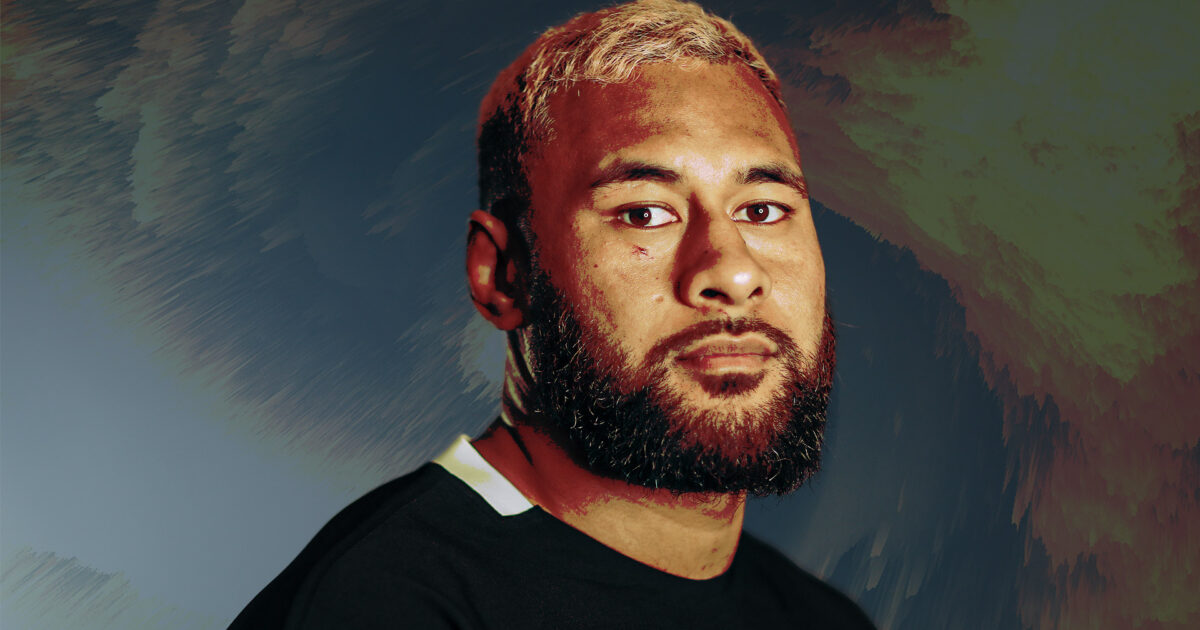Edge of glory: 'This will be the All Blacks season that you remember Patrick Tuipulotu kicking on'

2019 was a major step forward in Patrick Tuipulotu’s All Blacks career but there’s potential for the upcoming season to have an even bigger impact on the Auckland lock’s future.
Tuipulotu has always shown promise, ever since he debuted for the Blues in 2014. An All Blacks call-up came during the June series that same year, when England toured New Zealand.
Throughout the 2014 international season, young Tuipulotu was handed just a solitary start – in the All Blacks’ thrashing of USA. Otherwise, he was consigned to six bench appearances – which amounted to less than a full match worth of game time.
Still, just one year removed from playing in the New Zealand Under 20s side, nobody expected the second-rower to immediately take over from Sam Whitelock or Brodie Retallick.
2015 saw Tuipulotu sidelined for the test season following hip surgery, however. With no other obvious selections on the horizon, the All Blacks travelled to the World Cup in England with just three specialist locks.
Tuipulotu’s absence in 2015 meant the nation’s locking stocks were pored over like never before and even though Tuipultou was back in 2016, that small window of absence gave Scott Barrett the opportunity to make a name for himself.
Yes, no one had expected Tuipulotu to challenge for Retallick and Whitelock’s spots in his debut season with the national team, but few would have expected the behemoth to lose ground in the years following, but that’s exactly what happened.
In fact, early last year there were legitimate questions asked whether Tuipulotu was ever going to make the step-up from Super Rugby starter to an international standard lock.
As it turned out, all that Tuipulotu needed was a slight tweak to his diet. When the Wallabies travelled to Auckland last year for the Bledisloe Cup decider, Tuipulotu put in an impressive 69-minute effort and suddenly the loss of Brodie Retallick to injury a few weeks prior didn’t look so damaging to the All Blacks’ World Cup chances.
Of course, the All Blacks actually had too many locks on the field come the fateful semi-final in Yokohama last year, with Whitelock, Retallick and Barrett all handed starts. Tuipulotu, meanwhile, made a 14-minute cameo off the bench.
This year, there’s a massive window of opportunity for the 27-year-old to assert himself. Brodie Retallick is on sabbatical. Scott Barrett is on the mend. It’s not hyperbole to suggest that 2020 could be the most important year in Patrick Tuipulotu’s career.
With young second-rowers like Tupou Vaa’i, Quinten Strange, Mitch Dunshea and Pari Pari Parkinson chomping at Tuipulotu’s heels, he needs to make a statement while the door is still open
In the latest episode of the Aotearoa Rugby Pod, Crusaders halfback Bryn Hall suggested that now could be the time for Tuipulotu to really make his mark in the national team.
https://www.instagram.com/p/CGBSYuvhz0Q/
“I think it’s going to be a great opportunity for Patty as well, I think, a guy who’s played a lot of footy and had a great season for [the Blues] when it came to leadership,” Hall said.
“With the likes of Scooter [Scott Barrett] being out and Brodie not being there, I think it’s a great opportunity for Patty to really come in there and dominate with Sammy, and having that combination, because he’s going to get a lot of time obviously with a couple of guys out.”
Former All Blacks hooker James Parsons also suggested that Tuipulotu could be looking to take on more leadership roles in the set-up, with Kieran Read also having now departed the squad.
“Will he look at doing the defence [lineout] role? Understanding and running the defence? [Former All Black Luke] Romano’s done it in the past. You’d love to think he’d grab the bulls by the horns.
“I know for a fact that he’d love to sit at the back of the All Black lineout and call for [the throws] no doubt, but Whitelock’s probably got that role there. So it’ll be interesting to see if he takes on that leadership role of that defensive lineout.
Regardless of his duties, both players agreed that 2020 is the year that everyone should expect to see Tuipulotu take his game to the next level.
“I just think he’s ready for it,” Hall said. “If you look at this year, he got rewarded with the captaincy in that North v South game and I think it just shows the direction and the leadership qualities he has, and where he’s come in the last 12 months. He’s been there for a while, he’s been there four or five years, playing well at Super Rugby, that leadership quality has just gone to the next level … I think it’s time for Patty, I really do.”
Parsons, a teammate of Tuipulotu’s at the Blues, was also confident about the lock’s abilities.
“I think he’s made that step of serious All Black starter and now he could potentially come out the end of this season and be a leader, an All Black leader, and running the cutter.”
“I think the beauty of it is that he’s going to be a more senior guy in there now. Because he’s had such a successful year and he’s got that confidence, I think he’ll really come out of his shell and this will be the All Blacks season that you remember Patrick Tuipulotu kicking on.”
The matchday squad for the opening Bledisloe Cup match of the season will be named on Friday morning, with Tuipulotu and Whitelock likely to partner up in the second row.
Find the latest episode of the Aotearoa Rugby Podcast on your favourite audio streaming service or listen below:












































































